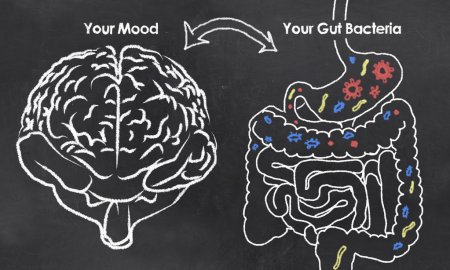Stress and "The Gut-Brain Connection”
Feb
10
The way we look at the brain and brain research has completely flipped on its head since a few decades ago when scientists first discovered that “messenger molecules” for the brain were circulating throughout the body in the bloodstream. None are more pervasive and penetrating than what scientists have found in the activities of microbiomes in the gut. Our bodies have more microbiome DNA than human DNA. The total human genome comprises around 20,000 genes, while the total microbiome DNA in our bodies total two to 20 million genes.
“Every cell is eavesdropping on the brain’s activity, sending and receiving messages identical to those that the brain processes,” says Deepak Chopra and contributing author Naveen Jain in their Huffington Post article “Will the Gut-Brain Connection Revolutionize Wellness?” (September 11, 2017; see http://www.huffingtonpost.com/entry/will-the-gut-brain-connection-revolutionize-wellness_us_59b6b598e4b0e4419674c375 ). In this article, Chopra goes so far as to say that all the common experiences we have are indicators of the brain’s connection to the gut -- “getting butterflies in your stomach when you feel nervous, overeating when you feel anxious, feeling dull and sluggish after taking an antibiotic, contracting stomach cramps before a competitive challenge, experiencing nausea or stomach upset from taking antidepressants.” Every major organ in the body from the heart to the stomach and liver combine to possess hundreds of millions of neurons with corresponding DNA, which again collectively makes up the “enteric nervous system”.
The bacteria inside our guts, microbiomes, include unlimited numbers of species and strains. They differ from person to person with limited or no relationship from person to person.” The known “messenger molecules” associated with the brain that circulate throughout the body in the bloodstream even produce neurotransmitters. Neurotransmitters are the chemicals our brain uses to communicate with the rest of the body. Every cell is eavesdropping on the brain’s activity, sending and receiving messages identical to those that the brain processes. For example, 90% of the well-known serotonin neurotransmitter is made in the body’s digestive tract, according to a 2015 report by CalTech (“Microbes Help Produce Serotonin in Gut”, April 09, 2015; http://m.caltech.edu/news/microbes-help-produce-serotonin-gut-46495 ). Serotonin is the chemical often referred to as the “happy chemical” and the balance of serotonin in our body influences our mood. A deficiency of serotonin can lead to depression.
Research is being administered about the influence of gut microbiomes on everything from autism, multiple sclerosis, PTSD, Parkinson’s Disease and brain health to cancer, obesity, diabetes and weight loss. It has become widespread as major research institutions and universities are conducting studies on the subject.
Scientists have found that differences in a person’s gut can be a clue to our specific health propensities, to cancers, but also something as immediate as our daily mood, behaviors, even happiness.


